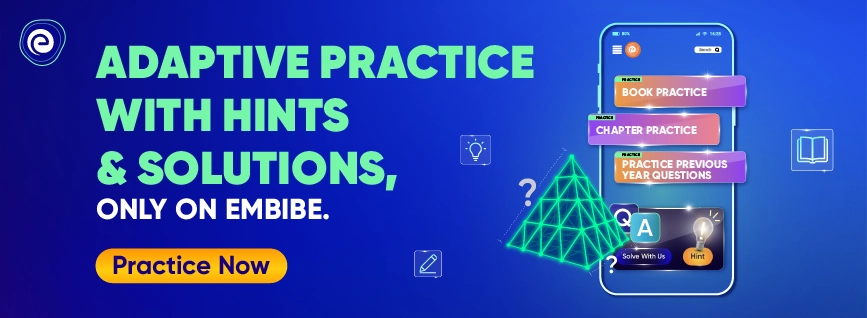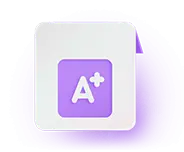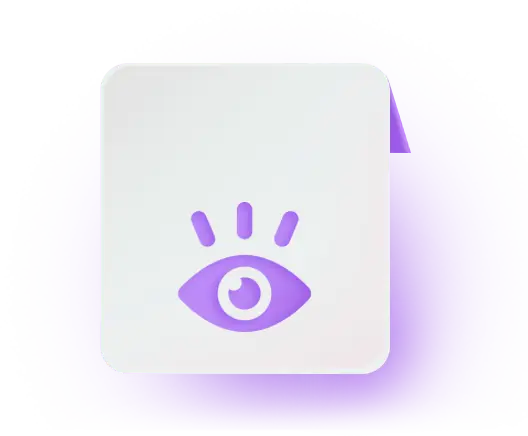- Written by Rahul Khatake
- Last Modified on 19-11-2024
Punjab Board Class 8 Exam 2025
Students are advised to be creative and take up challenges; after a swift move from 7th to 8th, students usually start shaping their future studying choices. Exploring new topics and taking up new subjects for their studies must be their prime objectives. Here’s a brief overview of PSEB:
| Punjab School Education Board (PSEB) |
| Abbreviation |
PSEB |
| Formation |
November 25, 1969 |
| Types |
Governmental Board of Education |
| Headquarters |
Mohali |
| Location |
“Vidya Bhawan”, Phase-8, Ajitgarh (Mohali) Pin Code -160062 |
| Official language |
Punjabi |
| Chairman |
Yog Raj Sharma |
| Parent Organisation |
Secretary of School Education (Punjab) |
| Official Website |
http://www.pseb.ac.in/en |
Exam Summary
Punjab School Education Board (PSEB) is the apex exam conducting body for Class 1 to 12 in Punjab State, India. The PSEB is quite similar to ICSE and CBSE exam bodies. Headquartered at SAS Nagar, Mohali, the PSEB Class 8 board is one of the most significant classes for students.
History of Punjab Board (PSEB)
Founded on November 25, 1969, by the Punjab Government, around 50 years ago, the PSEB or Punjab School Education Board was established via a legislative act, Punjab Act No. 24 of 1969. The sole aim of the Punjab Board was to develop and promote school education in Punjab. Later on, the Vidhan Sabha amended the Board’s Act to provide autonomy for the same.
Functions of The Punjab School Education Board
- Manage middle, matriculation and senior secondary level exams at the Punjab school level.
- Enlist the required syllabus, study materials, and textbooks for school education. One of the major tasks of the Board is to update and prepare the study curriculum and then mention recommended books accordingly.
- Arrange the entire logistics related to books, i.e. the compilation of publisher/author name, the printing of books, and the final sale of the same.
- To make arrangements for affiliations of schools to the Punjab Board.
- Make all the necessary arrangements for the schools affiliated with PSEB (ਪੀਐਸਈਬੀ)
Official Website Link
http://www.pseb.ac.in/en
Punjab Board Class 8 Syllabus 2025
The Punjab School Education Board (PSEB) Class 8 syllabus plays a very important role in the preparation of the exam. The syllabus highlights recent new subject additions and an expanded version of existing chapters for the same. Usually, students just glance through the syllabus instead of understanding its entirety; knowing the entire syllabus will help them a lot in course and book selection.
In addition, Punjab Board Syllabus will help students to know the topics they need to cover and learn in a year. Also, students can identify the chapters that will help them score more marks and are comparatively easier to finish first. Overall, knowing the syllabus will be a good resource for students to begin their study plan and maximise their scores. Main subjects such as Mathematics, Social Science, Science and English will be prepared more effectively, if the syllabus is known pre-handed. Furthermore, timely preparation for the relatable subjects of PSEB Class 8 will help students excel in their final exams.
What Syllabus is Covered in Class 8 of the Punjab Board?
The Punjab educational board curates the PSEB class 8 syllabus. The syllabus is designed keeping the following pointers in mind.
- Detailed course descriptions regarding each subject which will be studied in Class 8, Punjab board.
- All the assigned study/course material will be enlisted, including textbooks & e-books.
- PSEB class 8 grading system and marking scheme.
Unleash Your True Potential With Personalised Learning on EMBIBE
Tips on How to Use Punjab Board Class 8 syllabus Effectively
Students are advised to always revise for getting a better grip on the subject. Below we have provided some tips to use the Punjab board class 8 syllabus effectively:
- Always know your mentor and their teaching patterns too.
- Always have a brief understanding of topics, read the topic completely.
- Now that you know the syllabus, it’s good if students collate the previous year exam papers and from seniors, school library or teacher, and begin attempting the same.
Punjab Class 8 Mathematics Syllabus
Mathematics is one of the most important subjects for Punjab class 8 students. Maths is a mandated subject for students from classes 1 to 10 irrespective of the exam conducting body. The boards across every education platform have done this so that students can have basic knowledge of Mathematics. Learn about the Mathematical concepts and topics that are taught in PSEB class 8 2021-22.
| Sr. No. |
Chapter Names |
Chapter 1
Chapter 2
Chapter 3
Chapter 4
Chapter 5
Chapter 6
Chapter 7
Chapter 8
Chapter 9
Chapter 10
Chapter 11
Chapter 12
Chapter 13
Chapter 14
Chapter 15
Chapter 16 |
Rational Numbers
Linear Equations in One Variable
Understanding Quadrilaterals
Practical Geometry
Data Handling
Square and Square Roots
Cube and Cube Roots
Comparing Quantities
Algebraic Expressions and Identities
Visualising Solid Shape
Mensuration
Exponents and Power
Direct and Inverse Proportions
Factorisation
Introduction to Graphs
Playing with Numbers |
Punjab Class 8 Science Syllabus
Below we have provided the syllabus for PSEB class 8 Science for the academic year of 2021-22. Science is another common subject for many Exam Conducting Boards for class 1 to 10 students. Class 8 science is a crucial topic for students as it sets the tone for higher education. Some widely talked about concepts discussed in the PSEB Class 8 are: Why is the sky blue? What is water colourless? How do the birds fly? How can we sense taste?
| Sr. No. |
Chapter Names |
Chapter 1
Chapter 2
Chapter 3
Chapter 4
Chapter 5
Chapter 6
Chapter 7
Chapter 8
Chapter 9
Chapter 10
Chapter 11
Chapter 12
Chapter 13
Chapter 14
Chapter 15
Chapter 16
Chapter 17
Chapter 18 |
Crop Production and Management
Microorganisms: Friend and Foe
Synthetic Fibres and Plastics
Materials: Metals and Non-Metals
Coal and Petroleum
Combustion and Flame
Conservation of Plants and Animals
Cell- Structure and Functions
Reproduction in Animals
Reaching The Age of Adolescence
Force and Pressure
Friction
Sound
Chemical Effects of Electric Current
Some Natural Phenomena
Light
Stars and the Solar System
Pollution of Air and Water |
Punjab Class 8 Social Science Syllabus
One primary reason for students’ success in Punjab board classes is the clear idea of syllabus structure presented well in advance. Having an understanding of the syllabus and marking scheme helps students to allocate their studying time ideally. Dividing rational time for every subject is very important for scoring better marks. Understanding the syllabus well in advance is also essential as some concepts need two/three reference study material/books/e-books. Every recommended book and reference material is suggested by the Punjab Board; hence students need to read the syllabus carefully. Below is the syllabus for social studies; it covers all the topics related to History, Civics and Geography.
| Sr. No. |
Chapter Names |
| Part 1: Resources and their Development |
Chapter 1
Chapter 2
Chapter 3
Chapter 4
Chapter 5
Chapter 6
Chapter 7
Chapter 8 |
Resources: Types and Conversation
Natural Resources
Mineral and Energy Resources
Our Agriculture
Industrial Development
Major Industries
Human Resources
Disaster Management |
| Part II: Our Past III |
Chapter 9
Chapter 10
Chapter 11
Chapter 12
Chapter 13
Chapter 14
Chapter 15
Chapter 16
Chapter 17
Chapter 18
Chapter 19
Chapter 20
Chapter 21
Chapter 22
Chapter 23 |
How, When and Where
The Establishment of the Power of East India Company
Administrative Structure, Growth of Colonial Army and Civilian Administration
Rural Life and Society
Colonialism and Tribal Society
Handicraft and Industry
The Revolt of 1857
The Education and British Rule
Women and Reforms
Challenge to Caste System
Colonialism and Urban Change
The Changes in Arts, Painting, Literature and Architecture
National Movement 1885-1919
National Movement 1919-1947 AD
India After Independence |
| Part III: Social and Political Life |
Chapter 24
Chapter 25
Chapter 26
Chapter 27
Chapter 28
Chapter 29
Chapter 30 |
Constitution and Law
Importance and Principles and Secularism
Fundamental Rights, Directive Principles and Fundamental Duties
Parliament: Structure Role and Importance
Judiciary and its Special Jurisdiction
Effects of Social Inequalities and Social Justice
Efforts of the Government and its effects on People |
Punjab Class 8 English Syllabus
English is a mandated subject for the PSEB schools, but usually, students tend to concentrate more on other subjects like Maths, Science, etc. Scoring good marks in English will also help in increasing overall scores. In addition, having a basic knowledge of the broad syllabus will help students achieve more, prepare accordingly and be confident while writing the paper. Please refer to the table below to get acquainted with the Punjab board English syllabus 2021-22.
| Sr. No. |
| Unit I Reading Skills |
1
2
3 |
Unseen Passage for Comprehension
Unseen picture based Comprehension (with five multiple-choice questions)
Comprehension based on Dialogue/Conversation |
| Unit II (Textbook) |
| Sr. No. |
Chapter/Lessons Name |
1
2
3
4
5
6
7
8
9 |
Abdul Hamid
Say ‘No’!
How Daddy Decided What He Wanted to be
Three Question
Our National Symbols
The Punjab-A Glimpse
Childhood
Two Memorable Speeches
Saint Ravidas |
| Poem Names |
True Growth
Abou Ben Adhem
This is My Prayer To Thee
Sympathy
He That Is Down Needs Fear No Fall |
| Unit-III (GRAMMAR) |
| Sr. No. |
GRAMMAR |
1
2
3
4
5
6
7
8
9
10
11 |
Parts of Speech
Nouns
The Pronoun
Adjectives
The Verb
The Tenses
Active and Passive Voice
The Adverb
Non-Finite
The Determiners
The Sentence |
| Unit-IV COMPOSITION |
1
2
3
4
5 |
Letter/Application Writing
Notices, Explaining Newspaper Headlines
Guided Creative Writing
Dialogue Writing
Complete an Incomplete Paragraph |
Punjab Board Class 8: Steps to Download Textbooks
The PSEB (Punjab School Education Board) provides subject-wise textbooks for all Punjab Board students online. The textbooks are available in English, Punjabi, and Hindi medium for Mathematics, Computer Science, English, Social Science, Agriculture, and others online. Refer to the steps listed below to download the Punjab Board Class 8 textbooks from the official website:
- Step 1: Visit the PSEB official website at www.pseb.ac.in.
- Step 2: On the homepage, click on the Academic Wing tab and select the e-books option
- Step 3: In the e-books section, select the class 8 option
- Step 4: Now, subject-wise class 8 books will be displayed on the screen
- Step 5: Select the textbook or textbooks you want to download and click on the download button and save it on your device for future reference.
Benefits of Solving the Punjab Class 8 Question Paper
- Students can evaluate their progress at each preparation level.
- Students can know and focus on their strong & weak areas.
- Whatever the time students are left with before their annual exams, start working on your weak areas.
- Solving the Previous years PSEB class 8 Question Papers help you to understand the important topics, weightage & marks distribution.
- As some of the questions generally repeat, there is a high probability that you may come across some similar questions during your final class 8 Punjab exam. This will directly increase your scores.
- You get to know how to manage your time effectively in the examination hall.
Study Plan to Maximise Score
Preparation Tips
Never wait until the last minute to prepare. Preparing at the last minute will only stress you out and will not help you score well. Below are some strategies to help you score good marks in Class 8 Punjab Board Exams.
Organise your study area
Ensure that you have sufficient space for study, big enough to arrange your textbooks, exercise books and notes out. The room has sufficient light arrangement and enough ventilation. The chair and table should be comfortable because you will use them 8 to 10 hours everyday.
Use flow charts, video and diagrams
Use visual aids as much as possible for your preparation as they are really helpful in helping you understand as well as memorise. Use flowcharts, maps, diagrams also wherever necessary.
Always practice previous years question papers and sample papers
Practicing on the previous years’ question papers is considered one of the best ways to prepare for an exam. It helps you understand the question pattern, marking scheme, importance of different topics and chapters that are there on the syllabus and the time management of the whole paper.
Explain your answers to others
If you have somebody around you (such as your parents, friends, brothers or sisters, neighbours, who can understand your subjects), explain topics and answers to them just the way you would write it in the exam. This will help you gain clarity on the concepts and answers that you will write.
Organise a study group
Establish a study group with you like-minded students, meet them from time to time and discuss various problems in the group. Make sure that the group is not too big and you use the group for a good reason. Do not waste time on discussing unnecessary topics.
Take regular breaks
You need to keep yourself from stress. So, take a break from studying regularly to keep you afresh. Also, do not keep anything for the last moment. Start preparing in advance.
Create a proper study plan
Make a proper and balanced study plan giving due importance to all the subjects. Make a revision plan also and make the revision plan an integral part of the study plan. From time to time, analyse the level of preparation that you have achieved so far and make necessary amendments in both the study plan and the revision plan.
Plan activities of your exam day
Keep every item to be taken to the exam hall ready in advance. These items may include pens, pencils, geometrical box, pencil cutter, eraser, calculator (if allowed in the exam and if required), admit card etc. Know all the rules and requirements and also plan your route to the school, journey time and mode of transportation for that day.
Exam Taking Strategy
Along with exam preparations, Class 8 students should also maintain their composure and confidence while appearing for the exam. Below we have listed some essential points to remember while taking the exams:
- Investing too much time on a single question can drain you and will not help you achieve good scores. All of the questions should be given equal attention. Focusing on answering only one or two questions will not bring you the right results.
- It is a wise approach to start with questions that are easier to answer and for which you are confident. After this, you should visit the difficult ones. This will not only save you time but will also build your confidence when answering the questions.
- Students should not rush while writing answers as they may miss out some important parts and end up losing marks. Firstly, students should frame their responses in the head and then write them down correctly.
- If you have time left at the end of the examination, ensure you go through all the questions again and make sure your answers are correct.
Detailed Study plan
- Developing a Study Schedule: Students must make an effective study checklist by focusing on their weak and strong topics. Preparing a study timetable well beforehand helps students to time their exams in a calm manner. It also ensures that you don’t miss out on any crucial chapters before your examinations.
- Revise and Practice Regularly: One of the best tried and tested formulas for scoring good marks in Punjab board class 8 is practising and revising all the concepts regularly. Therefore, candidates should revise all the difficult topics daily. Furthermore, they should practice several questions available on sample papers, previous year papers, mock tests, etc. This will ensure that they score maximum marks in their examinations.
- Make Notes: Preparing notes before your examinations can help the students remember the definitions, diagrams, important points, etc., vividly. It also sharpens your memory and is of great help during last-minute revision. Preparing notes also saves a lot of time and effort of going back to the study material and reading the concepts on a daily basis. It helps students to be calm and to score maximum marks in the exams.
- Be Confident: Nothing is difficult, and if students study wholeheartedly with full dedication, they can score good marks in their exams. It is essential to be confident while giving your exams so that you don’t panic and end up losing marks. Students should avoid pessimistic thoughts and attempt the exam with a good attitude.
- Work on Problem-Solving Skill: Solving a question within the time limit is essential to score good marks in the examinations. Therefore, it is essential to enhance problem-solving abilities. All students are advised to practice previous year’s question papers and sample papers to develop the habit of answering questions swiftly, which will come in handy during the exam.
Punjab School Education Board will declare the results for Class 8 in April 2025. The PSEB class 8 exams will be held in March 2025. Students who appeared in the Class 8 examination of the PSEB can check the results from the official website. The Term I exams for Punjab Board Class 8 exams were conducted in December.
The practical exams for Punjab Board Class 8 will be conducted in April 2025.
How to check the PSEB Class 8 Result?
Students can check the PSEB Class 8 result by following the steps given below:
- Step 1: Visit the official website of the Punjab Board.
- Step 2: On the homepage, you can find the ‘results’ section. Click on the link.
- Step 3: Enter the credentials in the given space on the portal.
- Step 4: Click on the submit option.
- Step 5: The PSEB Class 8 result will appear on the screen.
- Step 6: Download the result and take a printout of it.
The result available online is a provisional result. Students must wait till the school board provides them with the result. Now that the results are declared, the school board will be providing the results pretty soon.
Details mentioned on the PSEB Result 2025
When students download the PSEB result 2025, they can access the following information:
- Roll number
- Student’s name
- Father’s name
- Mother’s name
- Date of birth
- School/District
- Category
- Set
- Subjects
- Subject wise marks and grades
- Aggregate marks and grade
- Qualifying status
Punjab Board Class 8 Result 2022: The Topper’s List
The toppers for Punjab Board Class 8 2022 are as follows:
- Rank 1: Manpreet Singh from Barnala – 600/600
- Rank 2: Himani Sethi from Hoshiarpur – 596/60
- Rank 3: Karmanpreet Kaur from Amritsar – 596/600
Q1. Where can students find important books for Punjab board class 8 exams?
A. All students studying with Punjab board affiliated schools can find important books pertaining to study for their class 8 exams at Embibe.
Q2. Where can I find online mock tests and practice questions for the Punjab board class 8 exam?
A. You can find practice questions and mock tests papers for Punjab class 8 at Embibe’s website. Students can also customise the practice and mock tests, as per individual topic and scoring preferences.
Q3. How can students score maximum marks in Punjab board class 8 exams?
A. To score maximum marks in Punjab board class 8 exams, students need to study with full dedication and revise the concepts daily. They should also take practice tests and mock tests to ensure clarity on all the concepts.
Q4. Where can I download the syllabus for Punjab board class 8?
A. You can refer to the complete syllabus for Punjab board class 8 at Embibe. Additionally, you can download the syllabus from the official website: http://www.pseb.ac.in/.
Q5. What are some of the best preparation tips for Punjab board class 8?
A. Some of the best preparation tips for the Punjab board for class 8 students includes covering the entire syllabus and practising the questions for a thorough understanding of the concepts.
Dos and Donts
Here are some pointers you should know and follow before taking the Punjab Board Exam for Class 8.
Do’s:
- Know all the exam dates as well as any related notifications. Follow up on any changes in dates and timing from the official sources to avoid confusion.
- Have a better understanding of the syllabus in order to prepare for the exam.
- Have a strong grasp of the concepts.
- Carefully read the instructions, before starting the exam.
- Make an effort to review every concept you’ve learned.
- Always arrive early for the exam.
- When taking the exams, bring all of the necessary stationery with you.
Don’ts:
- Do not memorise the concepts as it may lead to confusion and a lack of understanding when it comes to even basic concepts.
- Avoid focusing too much on tricks and shortcuts; understanding concepts and their fundamentals is more important when solving unfamiliar problems. Therefore, do not start with learning shortcuts, rather get your concepts right.
- Do not engage in unethical behaviour, as it will not benefit you in the long run. It may even result in you being barred even from future examinations.
- Don’t try to learn something new right before the exam as you may forget what you have studied earlier.
List of Educational Institutions
List of Schools
For students interested in the Punjab Board exam, we have enlisted schools below affiliated with PSEB.
| Sr. No. |
Name of School |
Location |
School Type |
| 1 |
Government Senior Secondary School, Dhapai |
Amritsar |
Government School |
| 2 |
Government Senior Secondary School, Kot Khalsa |
Amritsar |
Government School |
| 3 |
Government Senior Secondary School, Butaa |
Amritsar |
Government School |
| 4 |
Government Senior Secondary School, Katra Sufaid |
Amritsar |
Government School |
| 5 |
Government Senior Secondary School, Sohian Kalan |
Amritsar |
Government School |
| 6 |
Government Secondary School, Mallu Nangal |
Amritsar |
Government School |
| 7 |
Government Senior Secondary School, Jhita Kalan |
Amritsar |
Government School |
| 8 |
Government Senior Secondary School, Sarangra |
Amritsar |
Government School |
| 9 |
Government High School, Bhilowal Pacca |
Amritsar |
Government School |
| 10 |
Shaheed Darshan Singh Government Senior Secondary School, Pheruman |
Amritsar |
Government School |
| 11 |
Government High School, Burj Mansa |
Bathinda |
Government School |
| 12 |
Government Senior Secondary School, Kothe Chet Singh Wale |
Bathinda |
Government School |
| 13 |
Government Senior Secondary School, Bir Talab Nehar |
Bathinda |
Government School |
| 14 |
Government Senior Secondary School, Lehra Dhurkot |
Bathinda |
Government School |
| 15 |
Government Senior Secondary School, Giana |
Bathinda |
Government School |
| 16 |
Government Senior Secondary School, Rayia |
Bathinda |
Government School |
| 17 |
Government High School, Gidder |
Bathinda |
Government School |
| 18 |
Government Senior Secondary School, Jassi Bagh Wali |
Bathinda |
Government School |
| 19 |
Government High School, Balloh |
Bathinda |
Government School |
| 20 |
Government High School, Gurthari |
Bathinda |
Government School |
List of Future Exams
Students who have attended PSEB class 8 can attempt the following competitive exams :
- NLSTSE: It stands for the National Level Science Talent Search Exam. It inspires students to reason critically while solving problems. NSTSE exam papers are scientifically developed to test concepts underlying the curriculum. Students belonging to classes 2 to 12 from recognised schools are eligible. The study matter is aligned to the curriculum prescribed by the CBSE board. Students are advised to visit the official website to gather all the latest information.
- IMO: IMO stands for the International Mathematics Olympiad. It is a competitive exam held to recognise and encourage the mathematical creativity of children. The subject matter is aligned to the curriculum prescribed by the CBSE and ICSE boards. Additionally, IMO awards scholarships to the top rankers.
- ISO: The International Science Olympiad (ISO) is an annual exam held at both the national and international levels. The SSE is the ISO's governing body (Society for Science Education). All Indian students from Classes 1 to 12 from accredited schools are eligible. Click here to get all the latest updates regarding the International Science Olympiad.
- NIMO: It stands for the National Interactive Maths Olympiad. It is conducted by the EduHeal Foundation. NIMO intends to make Maths more fun. It plans to do this by introducing interactive activities such as workshops, olympiads, and seminars. To know more about NIMO visit their official website.
- ASSET: It stands for Assessment of Scholastic Skills through Educational Testing. It is a scientifically curated, skill-based assessment test. It concentrates on measuring how well school students master important concepts. ASSET also offers information on the strengths and weaknesses of both the individual students and whole classes.
- GeoGenius: It intends to spread the understanding of Geography among school children. It also trains them about the planet and inculcates a deep love and respect towards the environment, which performs a significant role in their progress. Know about all the latest updates regarding GeoGenius here.
- NTSE: National Talent Search Examination (NTSE) is one of the most eminent competitive exams for school students. The sole aim of NTSE is to recognise students with the high academic calibre and impeccable intellectual talent. Students qualifying for this exam (two-level) receive a cash award for a complete academic year. Visit the official website to access all the latest information regarding NTSE.
- INO: Indian National Olympiad or INO is financially held by the Government of India; the olympiads involve a five-stage procedure, namely:
- National Standard Examination (NSE)
- Indian National Olympiad
- Orientation cum Selection Camp (OCSC)
- Pre-departure Training Camp (PDT)
- Participation in International Olympiad
Read more about each test-taking section on the official website.
- SOF: Established by leading academicians, media personalities, and scientists Science Olympiad Foundation is a non-profit organisation. This competitive exam is conducted for students of classes 1 to 12. For different subjects, the foundation conducts different exams, for example, Maths (International Maths Olympiad), English (International English Olympiad), Computer (National Cyber Olympiad), etc.
- Silverzone Olympiads: This Olympiad is conducted by an NGO, Silverzone Foundation, which aims at promoting academic competitive awareness in Indian and foreign schools. It is conducted for classes 1 to 12 students, and it measures their professional, academic and social growth. The exam is also focused on creating creative thinking and problem-solving skills.
- NBO: National Biotechnology Exam inspires upcoming generations to increase their knowledge on biotechnology subjects and increase their interest in the same. The exam is for class 1 to 12 students, and the paper comprises 50 questions carrying 1 mark each.
- KVPY: The Department of Science and Technology conducts Kishore Vaigyanik Protsahan Yojana or KVPY. A national-level competitive exam pertaining to Basic Sciences for students of classes 1 to 12. Students who qualify for this exam are eligible for a five-year integrated MS program at the Indian Institute for Science Education and Research.
- IOEL: This is an exam to test the knowledge and competence for the English Language. The International Olympiad of English Language (iOEL) is held every year, and the syllabus of the exam is the same as the State boards, ICSE and CBSE Boards. Students studying between 1st and 12th grades are likely to attend this exam.
- SKGKO: The Smart Kid General Knowledge Olympiad is to test the capability and fluency of General Knowledge for History, Geography, General Science, Current Affairs and Sports. The test is held every year at a national level. Meant for students of classes 1-10, the syllabus covers studying patterns for CBSE/ICSE/State Board. Visit the official website to learn about the latest updates.
- ISSO: The International Social Studies Olympiad is a test run for analyzing students competence and knowledge in History, Geography and Civics. The exam is held every year at the National and International levels. The syllabus for iSSO is curated by the ICSE/CBSE/State Board.
Practical Knowledge/Career Goals
Future Skills
Coding:
Coding is a creative activity in which Punjab Board Class 8 students can actively participate. It helps in building computational thinking, develop problem-solving skills, improve critical thinking and exposure to real life situations. It aids in the development of computational thinking, problem-solving skills, critical thinking, and exposure to real-life situations in order to solve problems in a variety of domains. Coding in Class 8 focuses on laying the groundwork for students to build competencies in Artificial Intelligence (AI), Data Sciences, and other disciplines. These eventually help them acquire the right skills for their careers in coding.
















































